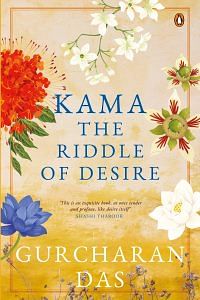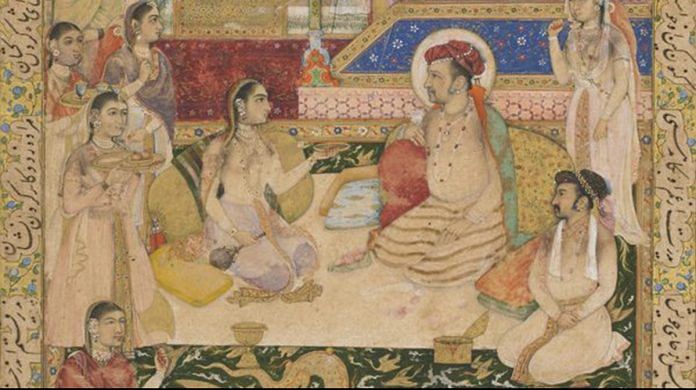Public intellectual Gurcharan Das writes about how dwindling desire in marriage can give way to another kind of love.
Duty to oneself versus duty to another
There is melancholic sadness at the very heart of kama
—Mahabharata I.85.7–8
As we were changing into our pyjamas, Avanti mentioned casually, ‘Not tonight.’
‘Why not?’ I asked with a forced smile.
‘No, not tonight.’
‘But that’s what you said last night; and the night before; and every night this week.’ After a pause, I asked, ‘What shall we do then?’
‘Let’s read.’
‘But we do that every night.’
After more than a dozen years of marriage, I suffered from the inescapable sulk of a lover. Avanti no longer felt the same physical desire. I remembered wistfully the blissful months immediately after our marriage when both of us used to rush home from work in anticipation of the evenings and nights of utter delight. But slowly and inexplicably, desire receded from her end, especially after the children came along. I felt resentful. My work too became more demanding and I came home later and later. I felt our marriage was caught in a middle-age inertia and it was beginning to dull my sensual feelings. Every desire seemed to become a decision in our unloving proximity.
We had raised two lovely girls while I had spent the years slogging and climbing the ladder in the shipping company where I worked in Ballard Estate. Even though I had risen to the top, life had grown increasingly tiresome. Although Avanti and I had a good marriage in all other respects, the daily routine of life had taken its toll. With the passage of time, I was becoming increasingly aware of my mortality, wondering if this is all there is to life. Feeling frustrated and unhappy, I complained to Ramu Mama. He listened sympathetically but didn’t offer any advice. We met again the following week and he told me he had spoken to his old psychologist friend—the same one who had once explained ‘male narcissism’ to us over dinner. Sensing my reluctance, he said, ‘Meet him at least. See him as my friend, not as his client, without any obligation.’ I agreed half-heartedly.
‘A woman loses her lover as soon as she makes him a husband,’ said the psychologist, sounding like an oracle. He diagnosed my nagging discontent as a universal dilemma. I had fallen into the ‘romantic trap’ that creates an illusion that love will last forever. Of course, one knows in one’s rational mind that love is not supposed to endure or even to be exclusive, but the immediate rush of desire makes one believe that love for this one person will last forever. I agreed with him instinctively. This is how I had felt in the early years of our married life when Avanti and I couldn’t get enough of each other and I felt our desire for each other would never die. But sooner or later, we did get enough of each other. Avanti, more than I, no longer felt the same physical craving. It was possibly the result of lazy access. The availability of each other’s bodies is too easy in a marriage.
‘Yes, sexual desire gives way over time, especially with the coming of children,’ he said. ‘It’s something else . . . another sentiment, another kind of love that is more mature, longerlasting, almost maternal, akin to a tender companionship, but it is love, nevertheless.’ He suggested counselling, jointly for Avanti and me. ‘Where they love, they have no desire, and where they desire, they cannot love,’ said the oracle, quoting Freud, who had observed this problem in many of his patients.
I was puzzled. ‘You mean because Avanti and I love each other, our desire has waned?’
The mundane reality of everydayness takes its toll, he explained. You are presented daily the physical, moral and personal defects of each other, plus the tiresome work of raising children; all these contribute to the decline of passion. The more common problem he had encountered was the opposite one—how to maintain male potency in a long-term relationship. ‘After years of monogamy,’ he said, ‘it is not uncommon for men to develop acute sexual disinterest, even secondary impotence.’
When I broached the idea of counselling, Avanti laughed. She dismissed it as something ‘high-fangled for immature people’. It was not a serious problem, merely a phase in our lives, and I was making too much of it—it would go away, she said. I let it be and never mentioned it again. But it didn’t go away. My feelings of resentment gave way to resignation and sadness. I concluded melancholically that desire must fade inevitably in middle age. Isn’t this what happens to every romance? Even the great love between Anna Karenina and Vronsky faded in the end and then . . . and then, I didn’t dare to think any more of the consequences.
Avanti’s answer to my gloomy restlessness was not to take passion too seriously. A bit like my mother, she had decided that one ought not to base something as significant as marriage and children purely on ephemeral emotions. Although we didn’t dwell on it, I was convinced that in Avanti’s eyes, marriage ought to be sustained by shared values, common interests and doing things together. She was wise in believing that romance and marriage did not always have to go together.
If a marriage evolved after a dozen years into a companionship of friendship, it would be trusting, intimate and grounded in honesty with a commitment to the well-being of the children. ‘If only men and women could be equals and genuine friends in marriage!’ she had once exclaimed when we were discussing the marital problems of another couple we knew. This was true to character; Avanti had always believed in genuine Aristotelian philia, ‘friendship’, where love consists in giving and wishing the good of the other. Meanwhile, I remained vulnerable.
 This excerpt is from the book “Kama: The Riddle of Desire” by Gurcharan Das. It has been published by Penguin Allen Lane.
This excerpt is from the book “Kama: The Riddle of Desire” by Gurcharan Das. It has been published by Penguin Allen Lane.



